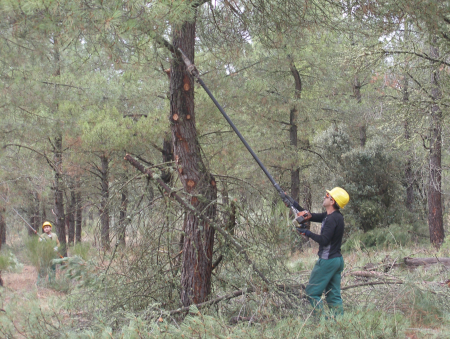
Objective:
The autonomous resin tapper trade is precarious due to factors such as the seasonality of the activity, the fluctuation of resin prices, some resination campaigns are even below the profitability threshold, and the difficulty of accessing complementary sources of income.
To support the sustainability of the resin tapper job, this guide proposes a model of territorial contract tailored to this group of workers, which can be used by public administrations to supplement their income through the remuneration of specific commitments and recognition of the positive externalities generated.
Context:
Resin workers can carry out agroforestry activities that are compatible and complementary to their main activity. Besides, resin tappers generate indirect benefits for society through their role in forest conservation, fire protection and mitigation of rural depopulation among other positive effects.
The figure of the territorial contract allows the public administrations to propose to the resin tappers the remunerated execution of complementary activities in benefit of the sustainable development of the rural areas and the payment for recognized positive externalities they generate.
Contacts:
Javier Calvo-Simón, javier.calvo@cesefor.com, www.cesefor.com
José Miguel García Asensio, urbionak@telefonica.net
Further information:
https://www.sust-forest.eu/